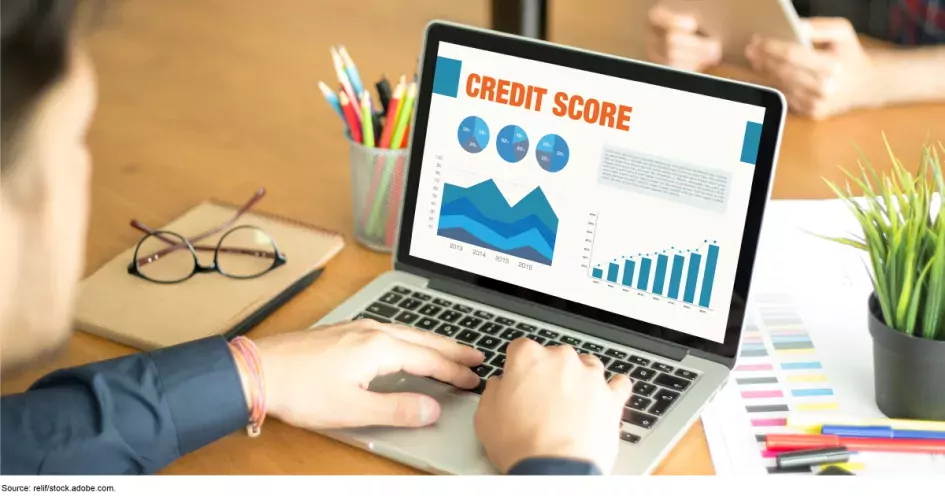Credit Scoring Alternatives for Those Without Credit
When you apply for a loan, the lender looks at your credit score to determine your eligibility for a loan and interest rate. Your credit score is calculated from things such as your history of making credit card and mortgage payments, and the status of other active loans you might have. But roughly 45 million Americans lack credit scores simply because those data points do not exist for them, which limits their ability to get a loan to buy a house or car.
Today’s WatchBlog post looks at our recent reports about how lenders are increasingly exploring alternative information or data not typically used in credit scoring to determine loan eligibility, and what consumers should know about this data.
Image

Why someone might not have a credit score
Not having a credit score does not necessarily mean someone has financial issues or is a risk to lenders. Typically, when people don’t have a credit score it is because they lack a credit history or recent use of credit. This could just mean they use cash or debit cards instead of credit cards, or haven’t taken on any loans. A lack of a credit score might also happen if all of the credit cards or loans for a household are in the name of a spouse or a partner.
In our November report, we found that people without credit scores tended to be low-income, younger, and minorities.
Credit scoring—traditional vs. alternative data
Credit bureaus are national entities that collect data from financial institutions on individuals who use their services, such as credit cards or bank services. That information is then used to determine their credit worthiness (or score).
As described above, these reports include things such as mortgage loans and credit cards, as well as data that shows negative credit performance like foreclosures and bankruptcies. Credit bureaus then analyze this data to create credit scores for consumers. These reports and scores help determine your eligibility for a loan and the interest rate you will receive on that loan.
But more and more lenders are turning to alternative data to determine loan eligibility. Alternative data is information not used in traditional credit reporting and can be financial or nonfinancial in nature. It can include information like your bank account transactions; your on-time rental, utility, or telecommunications payments data (traditional credit reports typically include only late payments); and the educational institution you attended and degree you earned.
In our new report, we found that while lenders can use alternative data to underwrite larger loans (like those for mortgages), this has been rare. Instead, lenders are more frequently using alternative data for smaller consumer loans—such as to issue credit cards or auto loans.
From fiscal years 2016-2020, only about 0.31% of FHA-insured loans (which are designed for low- and moderate- income borrowers with low credit scores) were made to borrowers without credit scores, which means they likely used alternative data for underwriting.
The pros and cons of alternative data credit scoring
Alternative data can help some consumers establish a credit score or improve their existing one by adding information to their credit files. This could in turn improve their chances of receiving a loan, and lower the amount of interest they pay on the loan.
However, the use of alternative data could also pose risks to consumers. This data could result in discrimination or violation of fair lending laws, and could create data privacy risks. For example, lenders could use alternative data such as level of education to determine someone’s loan eligibility, but this could—in turn—cause the lender to discriminate against populations that traditionally have had lower college graduation rates.
There are also concerns that the collection of alternative data could violate consumers’ privacy if lenders or credit bureaus gather alternative data without the knowledge or permission of consumers.
Getting alternative data counted in your credit score
There are steps you can take to get this data included in your credit score. If you want alternative data used in your credit scores, you typically have to opt-in to credit products available through private companies that collect this data in a credit score. Existing products are generally offered by credit bureaus.
Want to learn more about our recent work on alternative credit data? Check out our November 2021 and March 2019 reports.
- Comments on GAO’s WatchBlog? Contact blog@gao.gov.
GAO Contacts
Related Products

GAO's mission is to provide Congress with fact-based, nonpartisan information that can help improve federal government performance and ensure accountability for the benefit of the American people. GAO launched its WatchBlog in January, 2014, as part of its continuing effort to reach its audiences—Congress and the American people—where they are currently looking for information.
The blog format allows GAO to provide a little more context about its work than it can offer on its other social media platforms. Posts will tie GAO work to current events and the news; show how GAO’s work is affecting agencies or legislation; highlight reports, testimonies, and issue areas where GAO does work; and provide information about GAO itself, among other things.
Please send any feedback on GAO's WatchBlog to blog@gao.gov.




